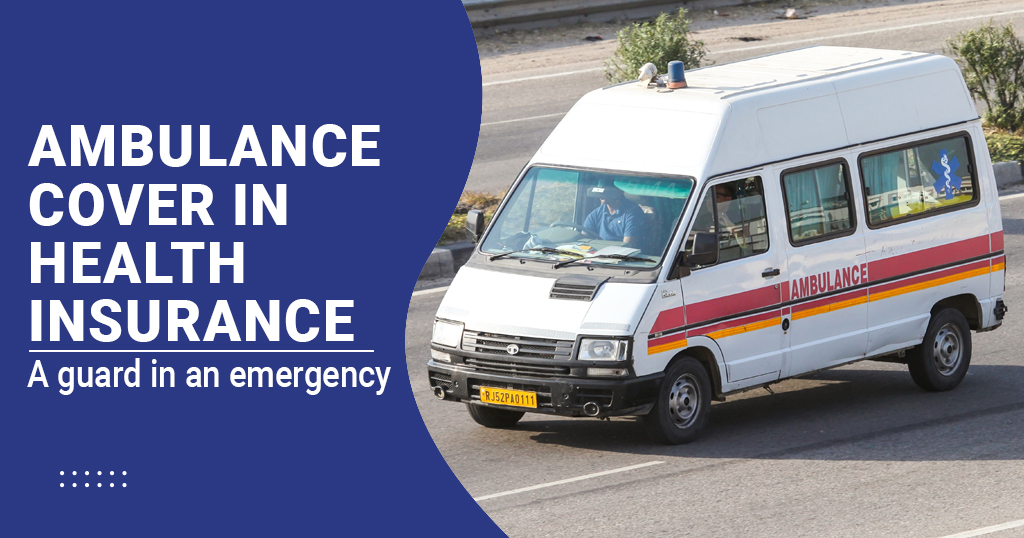In India, access to quality healthcare services is crucial, especially during emergencies when time matters the most. Ambulance services play a vital role in providing timely medical assistance and transportation to individuals in need. However, ambulance charges can be excessively high, making it challenging for many people to afford these services during times of distress. To address this concern, various insurance plans offer coverage for emergency medical services, providing much-needed financial relief to policyholders. In this blog, we will explore the different types of insurance policies for ambulance services in India and understand the benefits they offer.
Health Insurance:
Health insurance is the most common type of insurance that covers ambulance services in India. Most comprehensive health insurance policies include ambulance cover, either as an in-built feature or an optional add-on. When policyholders require emergency medical transportation via an ambulance, the insurance company will bear the cost up to a certain limit specified in the policy. This coverage extends to both emergency and planned hospitalizations, ensuring that individuals receive timely medical attention without worrying about the transportation expenses.
Motor Insurance:
Surprisingly, some motor insurance policies in India offer coverage for ambulance expenses. This applies when an insured vehicle is involved in an accident, resulting in injuries to the occupants. The insurance provider may reimburse the expenses incurred for emergency medical services availed at the accident scene or during transportation to a hospital. While not all motor insurance policies include this coverage, it's worth checking with the insurance provider or considering it as an add-on to your policy for added protection.
Personal Accident Insurance:
Personal accident insurance plans are developed to provide financial security to policyholders in case of accidental injuries, disability or death. Some comprehensive personal accident insurance policies include coverage for ambulance services following an accident. This coverage ensures that policyholders receive immediate medical attention and transportation to the nearest medical facility without worrying about the costs involved.
Travel Insurance:
For individuals traveling within India, some travel insurance policies offer coverage for ambulance services during emergencies. Travel insurance typically covers medical emergencies and transportation expenses during the trip. Policyholders can avail emergency medical services in case of sudden illness, accidents or injuries while traveling, ensuring they receive timely medical care without bearing the burden of high ambulance costs.
Employee Group Insurance:
Many companies provide health insurance coverage to their employees as part of their employee benefits program. These employee group insurance policies often include ambulance cover, allowing employees to access emergency medical transportation at no extra cost. This coverage is particularly beneficial for employees who might not have individual health insurance policies and rely on their workplace insurance for medical protection.
Conclusion:
In India, the availability of insurance coverage for ambulance services offers significant relief to individuals during medical emergencies. Health insurance, motor insurance, personal accident insurance, travel insurance and employee group insurance are some of the types of insurance that cover emergency medical services. Having insurance coverage for ambulance services ensures that people receive prompt medical attention and transportation without being burdened by the expenses during critical situations. It's essential to read the policy terms and conditions carefully to understand the extent of coverage for ambulance services. Additionally, individuals should be aware of the exclusions and claim procedures to make the most of their insurance benefits. By having the right insurance in place, individuals can safeguard themselves and their families during times of medical emergencies and ensure timely access to quality healthcare services.






